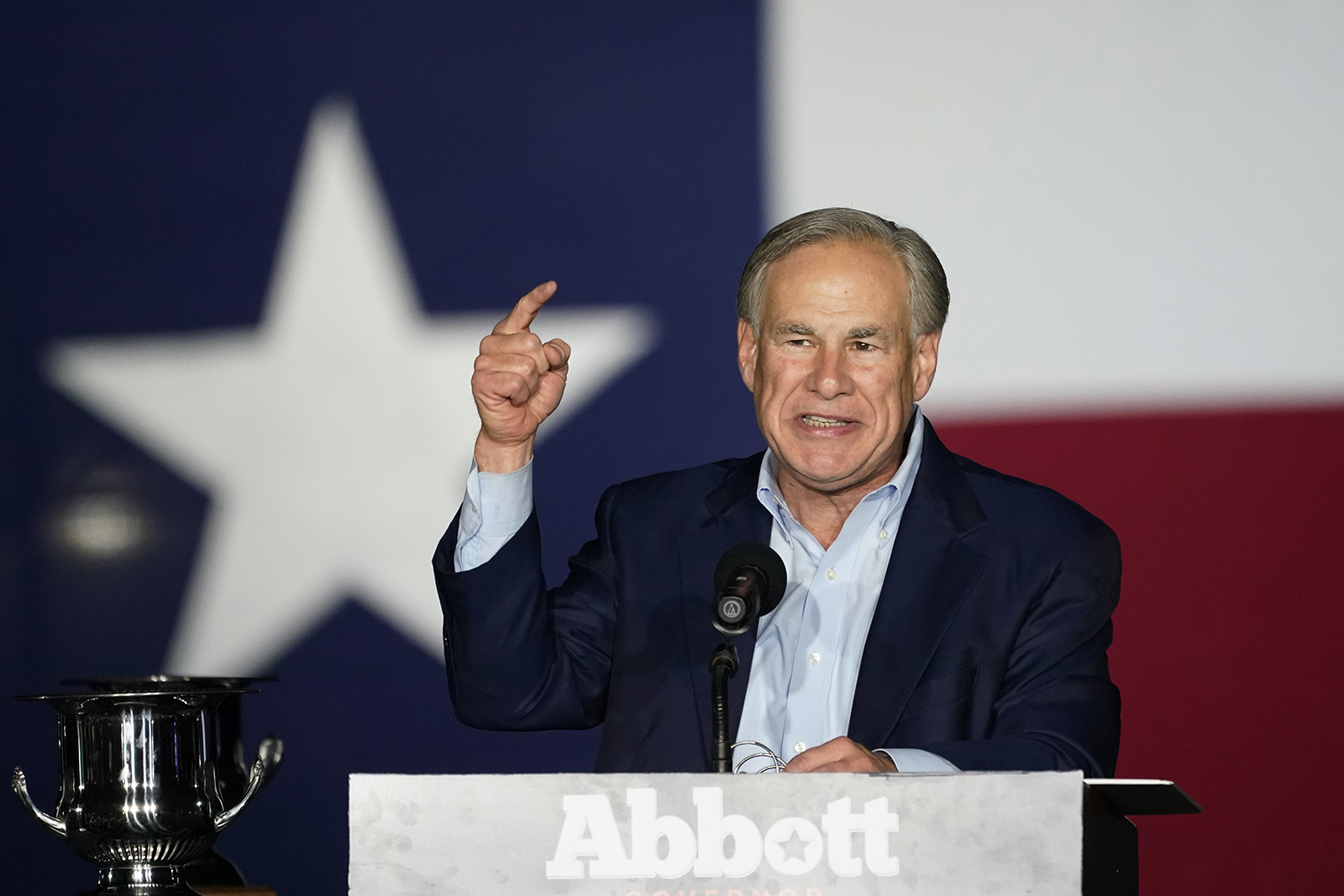TYLER, Texas (RNS) — “If you will bow with me, please,” said Christopher Moran, superintendent of the Whitehouse Independent School District, after he was invited to pray to open a news conference outside the Tyler Independent School District building last month. Those from both school districts were there to voice local opposition to a school voucher proposal being floated by Texas Gov. Greg Abbott that would channel taxpayer money to private schools.
The news conference took place the day before the governor’s visit to Grace Community School, one of the largest Christian schools in Tyler, to promote his proposal for education savings accounts, a voucherlike program that would provide families $8,000 per student per year to use toward private school tuition or other education-related expenses.
This being East Texas, there was nothing controversial about Moran, a public school official, leading a prayer. What was unexpected — apparently even for the governor himself — was the staunch objection from locals to giving public funds to religious schools.
RELATED: NY Private Schools Must Show They’re Teaching the Basics
After Moran’s invocation, Wade Washmon, president of Tyler’s school board, stepped onstage and wasted no time calling Abbott’s push for education savings accounts a gift in exchange for “political platitudes.”
Vouchers have the potential to decimate public school budgets in Tyler, which, according to data from The Dallas Morning News, has one of the largest concentrations of private schools of any rural area in the state.
But Washmon only objected to depriving public schools of funding, not the idea of public support for religious education. His solution was to allow public schools to teach religion. “See, for ages public schools and conservative Christian communities like Tyler have been forced to be less vocal about our faith or face legal action and repercussions from multiple government agencies, both state and federal,” Washmon said.
Moran echoed Washmon’s appeal. “Why not just allow Tyler ISD to have a Christian choice school that’s measured by the same educational standards as all other public schools, instead of sending taxpayer dollars to places they’ve never been and having no control over how outcomes are measured, or how education is executed?” Washmon asked.
Texas Gov. Greg Abbott speaks in Corpus Christi, Texas, on March 1, 2022. (AP Photo/Eric Gay)
The voucher issue is one that has left the state’s House and Senate at odds as well.
On April 6, the Texas House passed an amendment by a vote of 86-52 that banned voucher funding from the state budget. Twenty-four of the votes that banned vouchers came from members living in rural areas.
But that didn’t settle the question: The Texas Senate overwhelmingly passed its own bill that would fund school choice, and days after it had voted against vouchers, the House took up a pro-vouchers bill filed by Rep. James Frank, R-Wichita Falls. More than 100 witnesses testified at the hearing.
Frank’s bill is still pending in committee; the House referred the Senate pro-voucher bill, meanwhile, to the chamber’s Public Education Committee.
Nor has Abbott given up trying to convince rural Texans to support school choice. “I cannot do it alone, I need you standing with me every step of the way,” Abbott has told his audiences.
Since early March, the governor has reprimanded public schools for pushing “woke” agendas, telling a crowd at Brazos Christian School in Bryan, Texas: “Schools should not be pushing a woke agenda on their children. Our schools are for education, not indoctrination.” Abbott’s office says there were 200 parents in Bryan to hear him speak and over 500 parents in Tyler the next day.
Abbott, a Roman Catholic, has since given similar speeches in at least 12 private schools — 10 of them exclusively Protestant and mostly rural. After Texas Monthly published an article that reported Abbott pitching school choice at exclusively Protestant Christian schools, he visited Catholic schools in Texas — St. Mary Magdalen School in San Antonio and Nolan Catholic High School in Fort Worth.
Fort Worth’s Rep. Charlie Geren and San Antonio’s Rep. Steve Allison, both Republicans, were the only two metropolitan-area GOP members that voted against vouchers.
This article originally appeared here.


